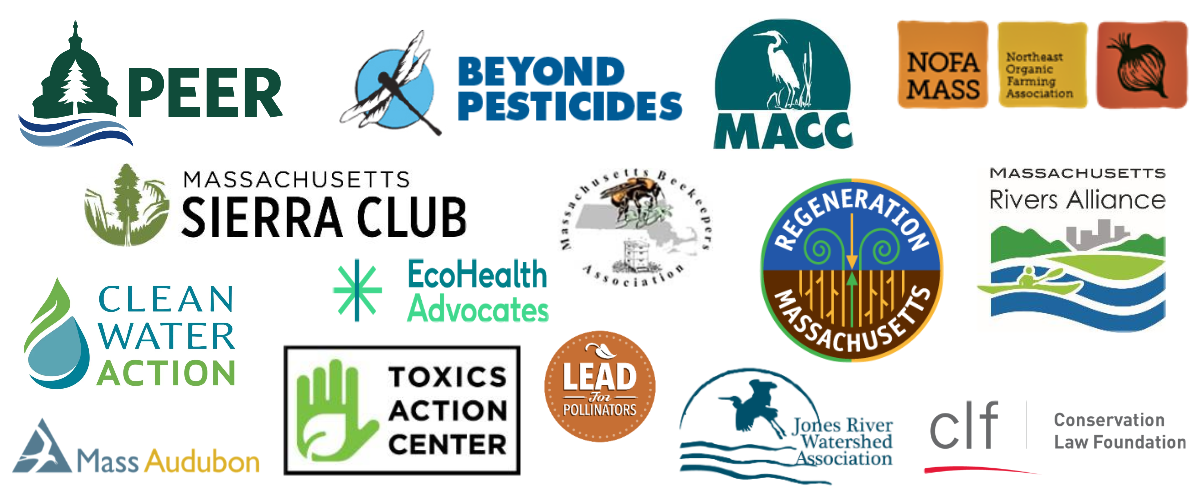05
Jun
Massachusetts Struggles for Safe, Effective Mosquito Management; Governor’s Arbovirus Proposal Much Improved but Big Questions Remain
 (Beyond Pesticides, June 5, 2020) Amidst the COVID-19 pandemic, Massachusetts is wrestling with solutions for mosquito-borne illnesses such as Eastern Equine Encephalitis (EEE) and West Nile Virus (WNV). A coalition consisting of national, state and local nonprofits, with the assistance of 75 legislators, won major amendments to emergency legislation sponsored by Governor Charles Baker, but the coalition seeks further refinements.
(Beyond Pesticides, June 5, 2020) Amidst the COVID-19 pandemic, Massachusetts is wrestling with solutions for mosquito-borne illnesses such as Eastern Equine Encephalitis (EEE) and West Nile Virus (WNV). A coalition consisting of national, state and local nonprofits, with the assistance of 75 legislators, won major amendments to emergency legislation sponsored by Governor Charles Baker, but the coalition seeks further refinements.
As originally introduced, Gov. Baker’s bill (H.4650 – see original legislation and amended version) would have given state agencies overly broad authority to eradicate mosquitoes through unlimited pesticide applications, without local input or notification to communities and residents prior to aerial spraying. It would have suspended all environmental safeguards whenever state officials determine that an elevated risk of arbovirus “may exist” in the future. In response to input from 75 legislators, the Joint Committee on Public Health made significant improvements to the bill, including–
- Giving property owners 48-hour notification before a spray event;
- Providing public notice as to what chemical agents will be sprayed; and
- Sunset emergency powers within two years, and authorization of a comprehensive stakeholder-driven evaluation of how the Commonwealth deals with mosquito control.
“We applaud lawmakers for significantly improving accountability and transparency, but more work is needed,” said Drew Toher, community resource and policy director at the national non-profit Beyond Pesticides. “During the coronavirus pandemic, it’s critical we work to avoid pesticide use that can harm immune and respiratory systems, and place focus on safer, alternative means of managing mosquitoes.”
“Organic farmers and gardeners respect and rely upon a robust diversity of insects to pollinate our crops and keep pests in check,” remarked Marty Dagoberto, Policy Director of the Northeast Organic Farming Association of Massachusetts (NOFA/Mass). “We hope to work with legislators and regulators to help fashion an ecological approach to mosquito-disease management which limits the use of pesticides,” he added.
A key issue is that there have not been adequate scientific analyses to understand why and how these viruses spread in particular geographic areas. Nor do we understand the full impact of spraying on non-target insects, like pollinators, and important aquatic predators, or the efficacy of spraying on reducing disease transmission.
The coalition is still pressing for strengthened provisions in the legislation that –
- Disclose the pesticides’ chemical composition, as some ingredients harm the respiratory system, and others are immuno-suppressants, both problematic during a pandemic;
- Enhance focus on actions shown to effectively reduce incidence of EEE and WNV, such as more reliance on larvicides, restoring fish habitat in streams and wetlands, and public education; and
- Require state agencies to follow a science-based mosquito-borne disease management plan that includes emergency spray authorizations based on predefined thresholds of disease-carrying mosquitoes set by the Commissioner of Public Health.
“Mosquito control strategies must use the best science available – even during a pandemic,” said Wendy Heiger-Bernays, Clinical Professor, Boston University School of Public Health. “Authorizing the spray of toxic chemicals without adequate consideration of the full suite of public health impacts is short-sighted. Additionally, residents of the Commonwealth should expect transparency and accountability, including publicly available notification.”
Prior to the changes, a Dear Colleague letter was circulated by State Representative Carolyn Dykema and State Senator Adam Hinds, urging the Massachusetts Joint Committee on Public Health to redraft the legislation. The letter was signed by 75 elected officials in the 200 member state legislature. The bill is currently in the Joint Committee on Health Care Financing.
Pesticide use is often billed as a silver bullet for mosquito control, but such claims are rarely if ever true. An effective public health mosquito management strategy emphasizes monitoring, source reduction, public education, and larvadicing. Programs that focus on killing adult mosquitoes after they are hatched, flying, and biting people and animals is the least effective means of mosquito abatement. Research finds that aerosol plumes from truck mounted ultra-low volume spraying fail to make adequate contact with target mosquitoes at the rate necessary to achieve disease reduction. And while adulticides (pesticides intended to kill adult mosquitoes) may indiscriminately reduce some level of flying insect abundance, larval mosquitoes remain.
The coalition, consisting of Beyond Pesticides, Clean Water Action, Conservation Law Foundation (CLF), EcoHealth Advocates, Jones River Watershed Association, Lead for Pollinators, Mass Audubon, Massachusetts Association of Conservation Commissions (MACC), Massachusetts Beekeepers Association, Massachusetts Rivers Alliance, Massachusetts Sierra Club, Public Employees for Environmental Responsibility (PEER), Northeast Organic Farming Association of Massachusetts (NOFA/Mass), Regeneration Massachusetts, and Toxics Action Center, is continuing to suggest amendments to the bill. A fact sheet from the coalition with additional details on the bill, further amendments, and mosquito management is available here.
For more information on what an effective community mosquito management approach looks like, as well as tools to enact these changes in your community, see Beyond Pesticides’ webpage on Mosquito Management and Insect Borne Diseases.










